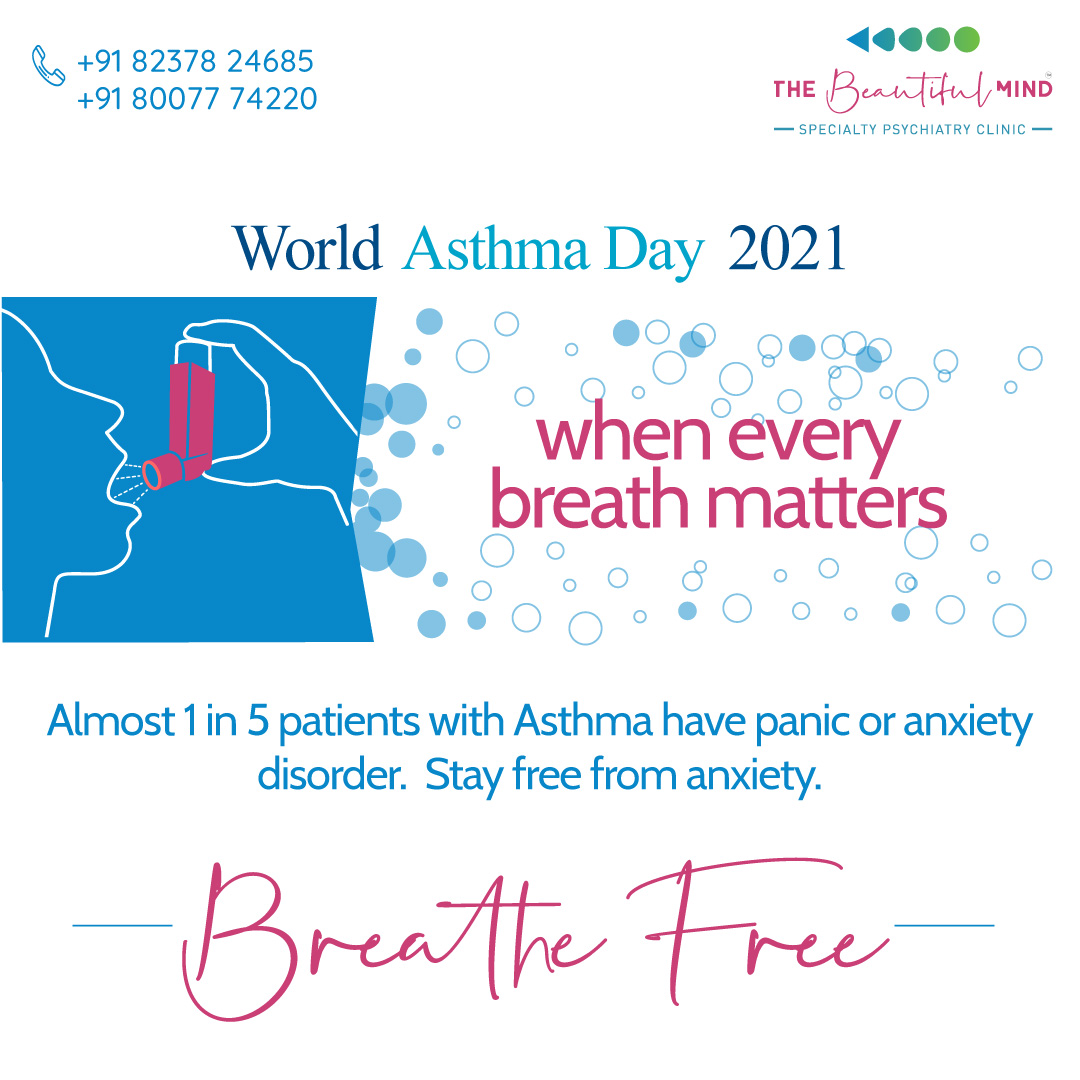
Know someone dealing with Asthma, then you may have also picked up that stress in their life often brings about worsening of their breathing complaints. One may wonder why?
Asthma is one the disorders intricately linked with the psyche. Historically, it was one of the classic psychosomatic diseases; where the mind (psyche) affects the body (soma) to cause physical symptoms.
Asthma is a chronic illness, usually requiring long term management. The need for prolonged medical support and apparent dependency causes depression, fatigue, anxiety in many. It also triggers panic attacks, in turn causing breathlessness of its own and often makes it difficult to completely differentiate these two conditions.
Also, there is evidence that anxiety and depression gave a negative effect on Asthma by itself. It can cause increased frequency and severity of attacks, prolonged hospitalisation and delayed recovery.
Anxiety, Panic attacks & Asthma:
Those who have experienced a severe asthma attack, have lived through the air hunger and identify with it as a life threatening situation. This persistent threat causes constant worry and anxiety.
When anxious a person hyperventilates and that may precipitate an Asthma attack.
Also, stress in the long run causes lowering of immunity and release of certain chemicals and molecules in the body such as histamine which can make the body even more vulnerable to asthma triggers.
Anxiety tends to cause the body muscles to stiffen or stay contracted. This leads the chest tightness and trigger an attack
What can help here?
Awareness and education about symptoms of anxiety. This can help patients recognise and identify anxiety
Relaxation techniques which focus on breath awareness for the patient
Therapy such as cognitive behaviour therapy
Medication for anxiety under guidance from mental health professional
Depression & Asthma
Asthma can be frightening and exhausting. It can cause depressive symptoms and in turn depression makes it harder to look after yourself and manage your treatments well. It can affect how you look at yourself and your situation and become an integral part of your identity. This can cause helplessness and may cause one to feel defeated and resigned.
What can help here?
Share how you feel with your friends, family and physician. They can help you or recommend further help.
Keep your Asthma plan ready. Get information about your medication, triggers, what to do and whom to call in case of exacerbations. This helps with preparedness and won’t be a nagging thought all the time.
Don’t let Asthma define you or be the only identity. Explore other things that make you, who you are. Consider therapy to guide you through this.
Medication for depression under guidance of a mental health professional.
Steroid and mental health symptoms
Steroids are one of the important components of asthma treatment. Studies have found two to three fold increased risk of anxiety and depression in those on steroids. These patients also benefit a lot from therapy and counselling as it not only helps them psychologically but also prevents need for further increase in steroid dose due to exacerbations.
COVID Woes:
Things may seem more stressful during the pandemic and cause to worry more about our health. Consult your general physician and keep stock of your prescribed medication. Monitor your health and assess if any symptoms are increasing.
Remember it may be good to err on the side of caution and be prepared for what may come but don’t let it overwhelm your entire life.
Don’t let what you don’t want to happen make you miss out on what you want for yourself and your life.
Remember to Breathe. Break free from Anxiety. Breathe Free.